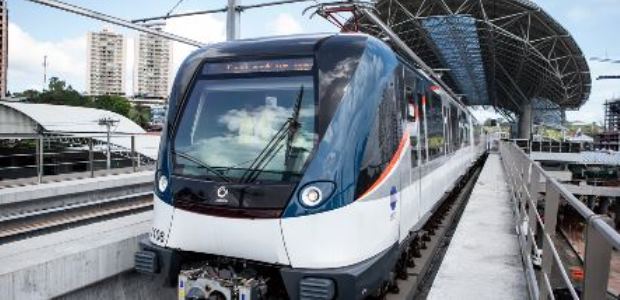
OSHA Cites Railcar Manufacturer for Hazardous Exposures
The agency has issued 17 serious violations and $105,000 in penalties for exposures at Alstom's Hornell, N.Y., plant.
OSHA announced that its inspectors, acting on a complaint, have cited Alstom Transportation Inc.'s Hornell, N.Y., railcar manufacturing and repair service facility for 17 serious violations, including for exposing employees to unsafe levels of known cancer-causing chemicals such as cadmium, lead, nickel, and silica. The citation says the company exposed employees to those substances beyond permissible exposure limits; failed to provide changing and shower areas to employees who worked with cadmium and lead; didn't provide required medical surveillance for employees exposed to lead and cadmium; allowed chromium, copper fume, iron oxide, and silica exposure by employees in sandblasting and welding operations to exceed PELs; and didn't train painters to properly use or store respirators.
They also found the company didn't ensure workers cleaned or removed lead-contaminated PPE before entering eating areas, and that poor housekeeping caused silica contamination and left dining tables contaminated with lead. OSHA cited the company for violations related to noise, respiratory combustible materials, welding, electrical, and bloodborne pathogen hazards, proposing a total of $105,000 in penalties.
"Employers who work with hazardous materials like these need to first determine if the materials can be removed by replacing them with something less hazardous," said Chris Adams, OSHA's Syracuse area director. "If not, employers must use the correct ventilation to reduce airborne exposure levels to below the OSHA limits. These hazards are preventable when employers ensure safety guidelines are followed."
According to Alstom USA's website, the 700,000-square-foot Hornell facility is the largest passenger rail manufacturing facility in North America, and employees there have delivered more than 8,000 new or refurbished rail vehicles to customers across the region, including 1,000 R160 subway cars to New York City Transit.